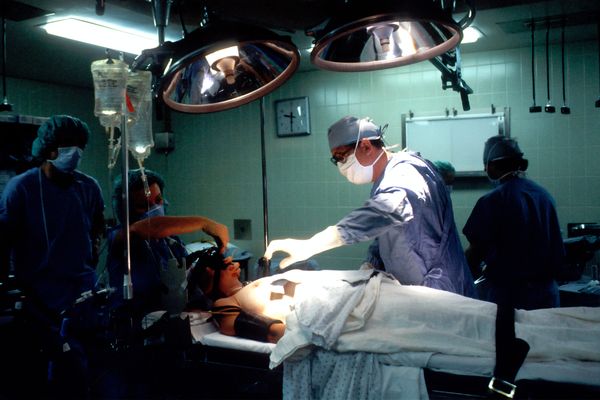“Miss, where do we go from here?” asked the mother in Spanish.
I was leading a Hispanic family of six through the various stations in the health clinic: a heavy, tan-skinned mother with weary eyes and dimples on her cheeks, the short, well-humored father who constantly cracked jokes on the status of his health, three little girls between the ages six to eight, and an energetic 10-year old boy. I met this family three weeks ago while volunteering at a free health clinic in a high school in Watts, Los Angeles. My role as a volunteer was to walk the patients through all of the stations offered and serve as an interpreter/ translator when needed.
On the family’s registration form and through conversation, I learned that the parents were undocumented and were making less that $25,000 a year. The last time the children had gone to the dentist was more than two years ago, and, upon inspection, the eldest son was found to have four cavities and one of the daughters had a decaying tooth. Despite the family’s resilience and laughter, the reality was that they were at a direct disadvantage in receiving proper health care because of their immigrant status and income status.
“Health care disparities” was a common phrase I had heard thrown about, especially in discussions on social injustices. However, I had never given much thought to what it really meant to be part of a disadvantaged group that suffered from health care disparities until participating in a Summer Medical and Dental Education Program (SMDEP) at UCLA. I learned that there were uncontrollable social factors that affected the accessibility and/or quality of care of patients.
Upon reflection, I realized that my colleagues at SMDEP and myself had all experienced health care disparities through personal or family experience at some point in our lives. My grandma, for example, had once been left in transitional care without lunch or dinner merely because she could not speak English and could not communicate to the nurses. Had it not been for my mom who arrived in the afternoon, my grandma would have been dismissed with hardly any food in her stomach–– unacceptable, especially considering she was recovering from her second knee surgery. My colleague had a grandfather who died from heart disease because neither insurance nor family could afford to pay for the medications any longer. Another colleague had to miss school on several occasions to accompany his grandma to doctor appointments to serve as an interpreter/translator. There is no way of sugarcoating this: America’s health care services suck in many ways, and the healthcare sector is in need of more diverse professionals in order to empathize and provide better care to the underserved population.
My SMDEP family came from all different backgrounds (predominantly Latinx and African Americans), but what tied us together was our experience with health care disparities first hand. We learned to embrace our experiences and use them as inspiration to make our mold in the healthcare field. Admittedly, after finishing my first year of college, I felt discouraged from pursuing a pre-med route. While everyone seemed to have it together, I felt like I was not good enough to make it to medical school. Medical School? (lol) It was like a blurry mirage.
Thank you SMDEP for reigniting my passion for pursuing a medical career. To my SMDEP family (and really anyone who has flirted the idea of pre-med or pre-dent, but has felt discouraged for one reason or the other), hold on to your dreams. Let’s remember where we came from. We, black and brown lives, are needed in the healthcare field. As one of the directors prophetically proclaimed at the SMDEP graduation ceremony, “we are on our way up and there’s no stopping us.”





















